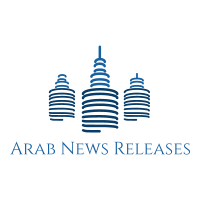DUBAI: The Mohammed Bin Rashid Space Centre (MBRSC) today announced that the second analog study of the UAE Analog Programme is set to commence, as part of NASA’s Human Exploration Research Analog (HERA). The analog study will hold 180 days of research work across four phases (45 days each) where the analog crew members will study how they adjust to isolation, confinement, and remote conditions on Earth before sending astronauts on long duration missions.
All four phases of the second analog study of the UAE Analog Programme will include studies provided by local universities, with the first phase scheduled to begin on 26 January 2024. The Emirati analog crew members will begin their participation from the second phase, which is scheduled for 10 May 2024, while the third and fourth phases, will commence on 9 August 2024 and 1 November 2024, respectively.
As part of NASA’s HERA, analog crew members from the UAE will be part of the research team at the Johnson Space Center, where they will carry out various s
cience and maintenance tasks inside the HERA habitat.
By replicating space-like conditions on Earth, HERA is a unique three-story habitat designed to serve as an analog for isolation, confinement, and remote conditions in exploration scenarios while simulating a journey to Mars. The set of activities onboard this unique habitat will include testing augmented reality and monitoring their mock environment. The analog crew members will also face scenarios such as increasing communication delays with their ground control support staff outside their habitat as they ‘approach’ Phobos.
These activities assist researchers design strategies to help the analog crew members become more autonomous, work as a team, and communicate effectively to accomplish tasks. With this data, scientists can develop strategies to better prepare astronauts for interplanetary missions and eventually for ventures to Mars, a long-standing vision of the UAE under the Mars 2117 Programme.
UAE universities are also playing a pivotal role in
the second analog study of the UAE Analog Programme through their diverse research studies. United Arab Emirates University (UAEU) is focusing on three major areas. The first study will investigate glucose metabolism dysfunctions caused during the isolation period, using metabolomics. Another study aims to detect deficits in brain function due to cognitive fatigue, while the third project will be an optical-based cardiovascular vital signs monitoring, exploring new methods to assess heart health in isolated environments.
Mohammed Bin Rashid University of Medicine and Health Sciences (MBRU) is contributing with two critical studies, including assessing changes in whole-body energy consumption, energy content, bone density, and muscle mass before and during isolation, and another study which examines the effects of prolonged exposure to a space analog environment on cardiovascular variability and cardio-postural interactions.
The American University of Sharjah (AUS) is also participating with a significant st
udy that will assess mental stress in isolation and confined environments. This research is vital for understanding the psychological challenges faced during long-term space missions and developing strategies to mitigate these stresses.
Salem Humaid AlMarri, Director General, MBRSC said: ‘The UAE Analog Programme is instrumental in deepening our understanding of the challenges and nuances of long duration space missions. They are also pivotal in shaping the scientific methodologies and technological innovations required for future expeditions to the Moon and beyond. Under the visionary leadership of the UAE, we continue to enhance Emirati capabilities and technologies with the goal of sending our astronauts on long duration missions. Through the UAE’s second analog study, we are laying a robust foundation for our nation’s ambitious journey across the cosmos, driven by a commitment to enhance human understanding and capability in the realm of space exploration.”
Adnan AlRais, Mars 2117 Programme Manager, MBR
SC said: “The analog missions provide us with invaluable insights into the physical, psychological, and technological challenges of long-duration space travel. As we simulate the conditions of space here on Earth, we are not only testing human endurance and adaptability but also refining the technologies and strategies that will be pivotal for the success of future expeditions to the Red Planet. Each discovery and lesson learned from these analog missions also bring us a step closer to turning the ambitious vision of the Mars 2117 Programme into a reality. It’s a testament to the UAE’s commitment to being at the forefront of space exploration and to contributing significantly to the global understanding of human capabilities in space.”
The first analog study of the UAE Analog Programme, a part of the SIRIUS-21 programme, was successfully concluded in 2022, and focused on understanding the effects of isolation on human psychological and physiological conditions.
The UAE Analog Programme is one of the project
s managed by MBRSC under the UAE’s National Space Programme and funded by the ICT Fund of the Telecommunications and Digital Government Regulatory Authority (TDRA), which aims to support research and development in the ICT sector in the UAE and promote the country’s integration on the global stage.
Source: Emirates News Agency
